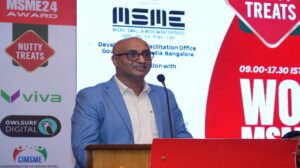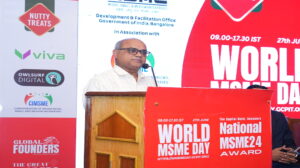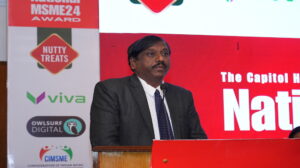Indonesia Warms up to Blockchain

Following in the steps of international counterparts, Indonesia is setting its sights on blockchain as an enabler of increased efficiency and greater transparency with applications currently being explored in areas and industries that include e-voting and agriculture.

Jakarta, Indonesia, The Diary of a Hotel Addict, Flickr
Melbourne-based startup Horizon State, which was recently named one of the World Economic Forum’s Tech Pioneers, announced in July a project to roll out a community voter platform built on blockchain technology in the island of Sumatra which it hopes to scale-up for regional and national government elections in Indonesia.
“We’re in interesting dialogue at the moment with national and regional governments, which are interested in the future to use of the technology in regional and national government elections in the region,” Horizon State CEO Oren Alazraki told ABC.
The Sumatra project focuses on providing the 92 million members of Indonesia’s largest Muslim organization, Nahdlatul Ulama, with a digital ballot box on their mobile phones that allows them to vote on key decisions affecting their community, such as electing leaders, allocating funds and deciding on community projects.
In this particular use case, blockchain technology promises to provide trust in the electoral process itself as well as very low cost ways of verifying that these votes took place.
Another topic that’s got people excited is the use of blockchain in the agricultural sector. Startup HARA Token is trying to get Indonesia’s rice growers on the blockchain.
The company wants to use critical information like soil quality, grain price, and land ownership from farmers and field agents to help Indonesian farmers increase annual yields. Farmers who input this data into the blockchain will be rewarded with HARA Tokens, which can be exchanged for needed goods like fertilizer.
In the end, this could help make farmers more plugged-in and knowledgeable about prices, sales, and best practices. Meanwhile, NGOs and government institutions could gain access to a valuable data set that shows what’s happening in the rice sector in real time.
HARA Token wants to reach 2 million farmers by 2020 but by September 2018, they’ve only reached 7,000.
Earlier this year, tech firm Online Pajak launched a blockchain-driven app that allows customers to share encrypted tax data with institutions such as the tax and treasury offices, banks and the central bank.
As well as increasing transparency and reducing paperwork and errors, it would mean tax payers can know for sure they have paid their dues, said Online Pajak’s founder Charles Guinot.

Bitcoin, cryptocurrency, Pixabay
Indonesia has witnessed the emergence of a blockchain industry in recent years. Although smaller and less developed than regional counterparts like Singapore, the country is home to several noteworthy startups including Pundi X, a maker of point-of-sale devices supporting cryptocurrency, and Indodax, formerly Bitcoin Indonesia, the country’s largest cryptocurrency exchange.
In August, it welcomed a new blockchain hub called Indonesia Blockchain Hub. The hub was launched to serve as a center for developing and promoting blockchain in the country, helping unify the efforts of various local communities, drive innovation and offer education.
According to reports, five major banks, Bank Negara Indonesia, Bank Rakyat Indonesia, Bank Mandiri, Bank Danamon and Bank Permata, are toying with the idea of implementing blockchain in their systems.
While Indonesia has so far welcomed blockchain technology, it has taken a different stance towards cryptocurrencies. In 2017, Bank Indonesia banned fintech companies using cryptocurrencies for transactions, which doesn’t prohibit trading of the digital tokens itself.
Despite the prohibition, the regulator unveiled earlier this year plans to issue its own cryptocurrency or digital rupiah backed by blockchain technology.
An assistant to Bank Indonesia’s executive director for payment systems Susiato Dewi said the digital rupiah would be trialed this year in an effort to help make the payment system more efficient. Indonesia hopes to be the first country in the world to launch a digital currency.






